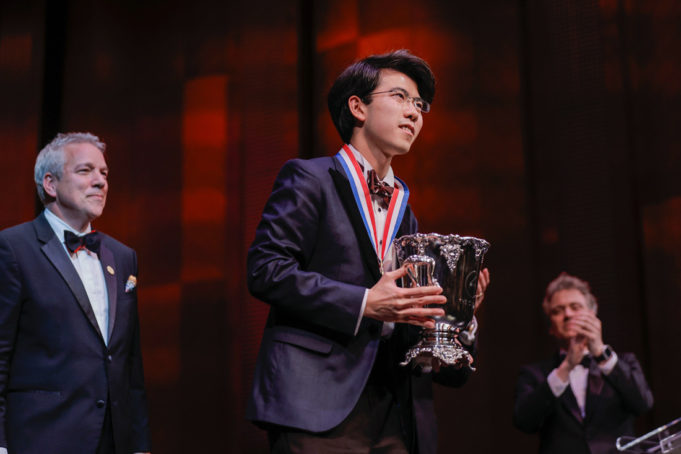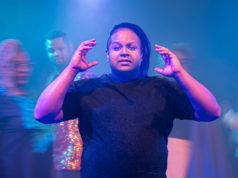At the end of the last Van Cliburn Competition, I predicted that someday the contest would be won by a pianist I was high on from the start, rather than someone I needed to talk myself into. That prediction came true during the very next edition of our esteemed piano competition, as Aristo Sham took a gold medal that I found quite gratifying.
(One reason for the gratification was that the world sided against me regarding Lim Yun-chan’s final performance in 2022. I now suspect that the world was right about that one. Regardless, it’s nice every once in a while to agree with not only the judges but also the voters who gave Sham the audience award.)
While I wasn’t pleased with all the results — if I lived to cover the next 50 Cliburns, that probably wouldn’t happen a single time — the 29-year-old Hong Kong native was brilliant from start to finish this May and June, without turning in a single disappointing performance. Maybe his version of Scriabin’s Tenth Piano Sonata in the semifinal meandered a bit, though the colors came out bright.
Even more impressive was that Sham managed to capture that gold without playing any of the traditional showpieces in the final round, showing a heady mix of flair and restraint in Mendelssohn’s First Piano Concerto before giving an imposing reading of Brahms’ Second, one that dovetailed perfectly with the Fort Worth Symphony Orchestra under the baton of Marin Alsop. Given the frantic rehearsal schedule at the Cliburn, getting the soloist in sync with the orchestra might just be the toughest job of all, and Alsop did great work accompanying Sham’s interpretation. I feel safe saying she’s the best conductor that this competition has ever enjoyed.
The silver medal went to Vitaly Starikov, which left me with mixed feelings. His performance of Schumann’s Piano Concerto frankly bored me, but the 30-year-old from Yekaterinburg was much better in Bartók’s Second Piano Concerto, a virtuoso showcase that we haven’t heard enough of at the Cliburn. He drove the work forward with due momentum and didn’t quail in front of the Hungarian composer’s thickets of notes.
The bronze medal went to Evren Ozel, the 26-year-old from Minneapolis whose performances of Beethoven’s Fourth and Tchaikovsky’s First piano concertos I found worthy of respectful applause, much like his other performances.
Of the other finalists, I thought Carter Johnson deserved most to be among the medals, as his performance of Ravel’s Concerto for the Left Hand came out dry and effervescent like good French Champagne. He also emphasized the lyrical aspects of Prokofiev’s Second Piano Concerto, a piece that many pianists rightly treat as a banger. Along with Sham, he did the best job of blending in with the orchestra.
Philipp Lynov played the same Prokofiev piece and didn’t give it too many distinguishing features, though the 26-year-old Muscovite was better in Liszt’s Second Piano Concerto, to which he gave an appropriate burnished texture and grand manner.
Meanwhile, Angel Stanislav Wang lifted his game when he played Rachmaninov’s Third Concerto. His momentum flagged occasionally, but the 22-year-old from Los Angeles (who has Russian-Chinese parents, thus his unusual name) gave the piece some great clarity, especially in the first movement.
Among the other discretionary prizes, Ozel won one for his Mozart concerto performance. China’s Cai Yangrui was named the best performer of the new work commissioned for the competition. (I really should have mentioned Gabriela Montero’s Rachtime earlier, a chuchería by the Venezuelan composer that combines Russian and Latin elements to intriguing effect.) Other prizes went to Germany’s Jonas Aumiller, Canada’s Alice Burla, and Russia’s Mikhail Kambarov.
Like Vladimir Horowitz and the late Mark Russell (who always played his piano standing up), Sham does not always wear a bowtie but seems to prefer it, so score one for the men who sport that old-fashioned neckwear. A bowtie will not make a pianist play as well as Horowitz, but it is a distinguishing sartorial mark that Sham will carry forward as Hong Kong’s first-ever medalist in this competition. In his backstage interview, he said that whenever he played Mendelssohn, he felt like everything would be all right. That’s a thought worth holding onto as we leave the 17th Cliburn Competition behind and head into summer.












